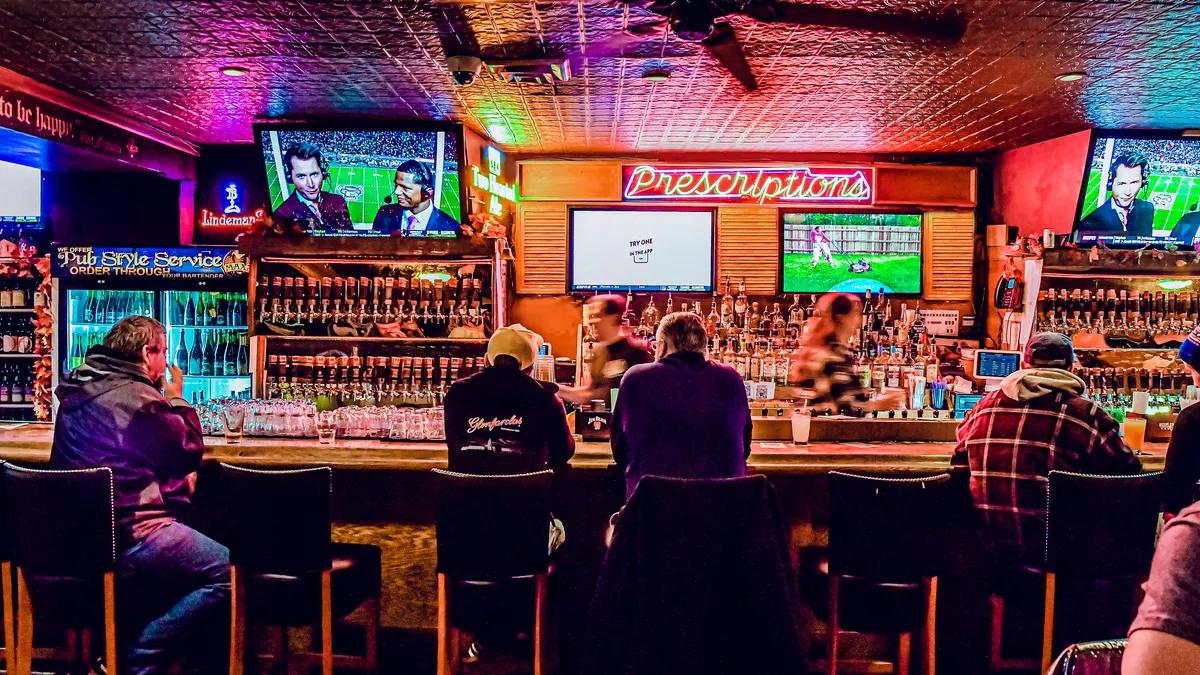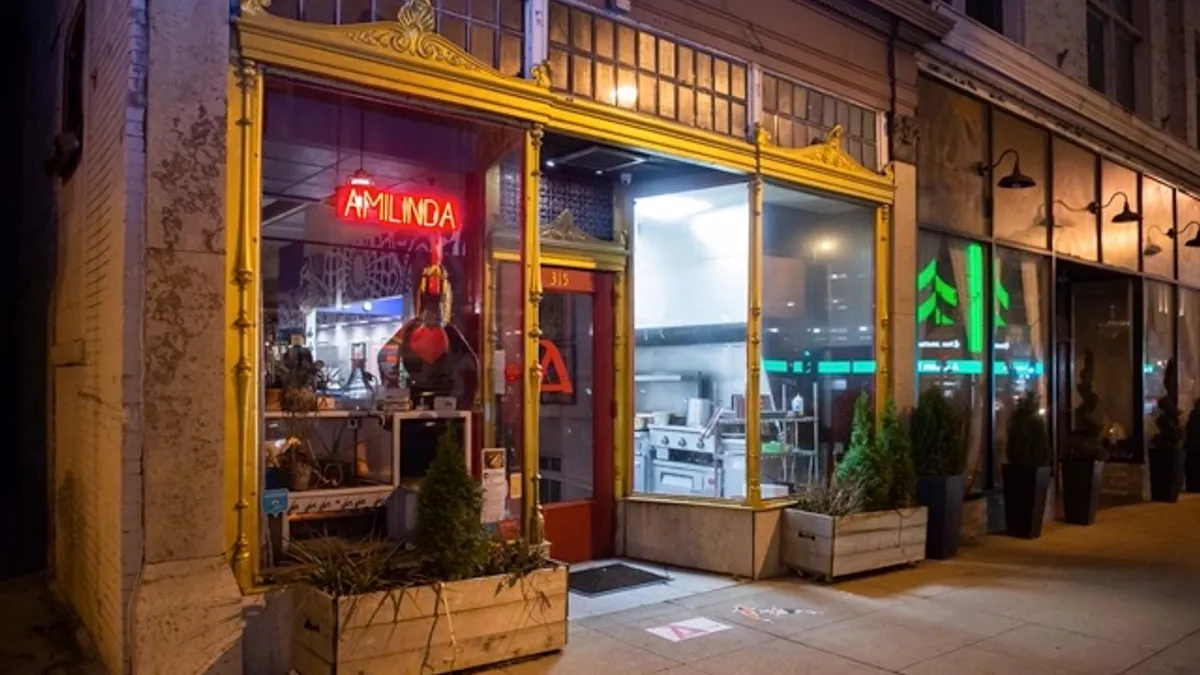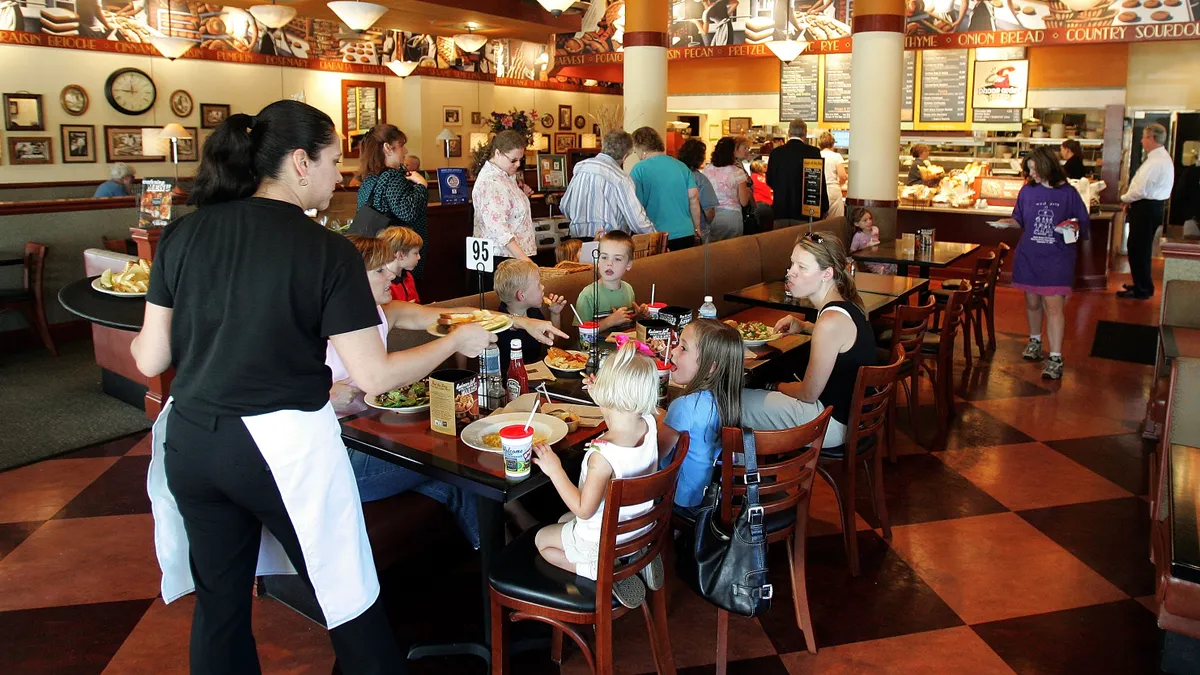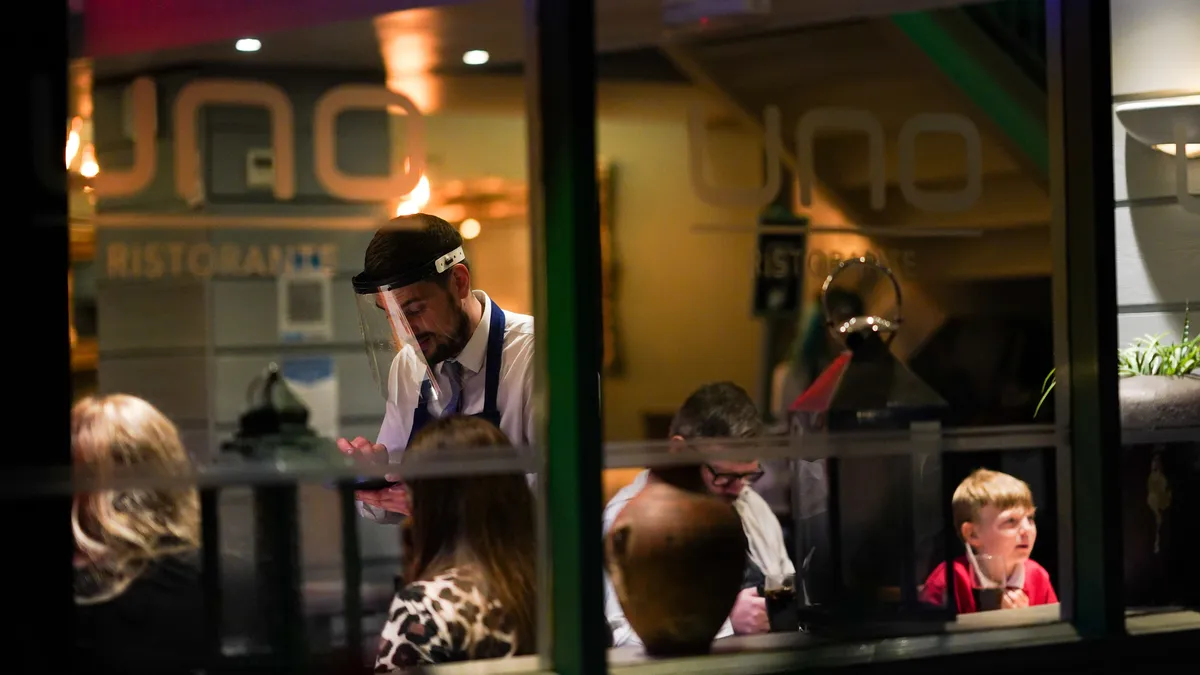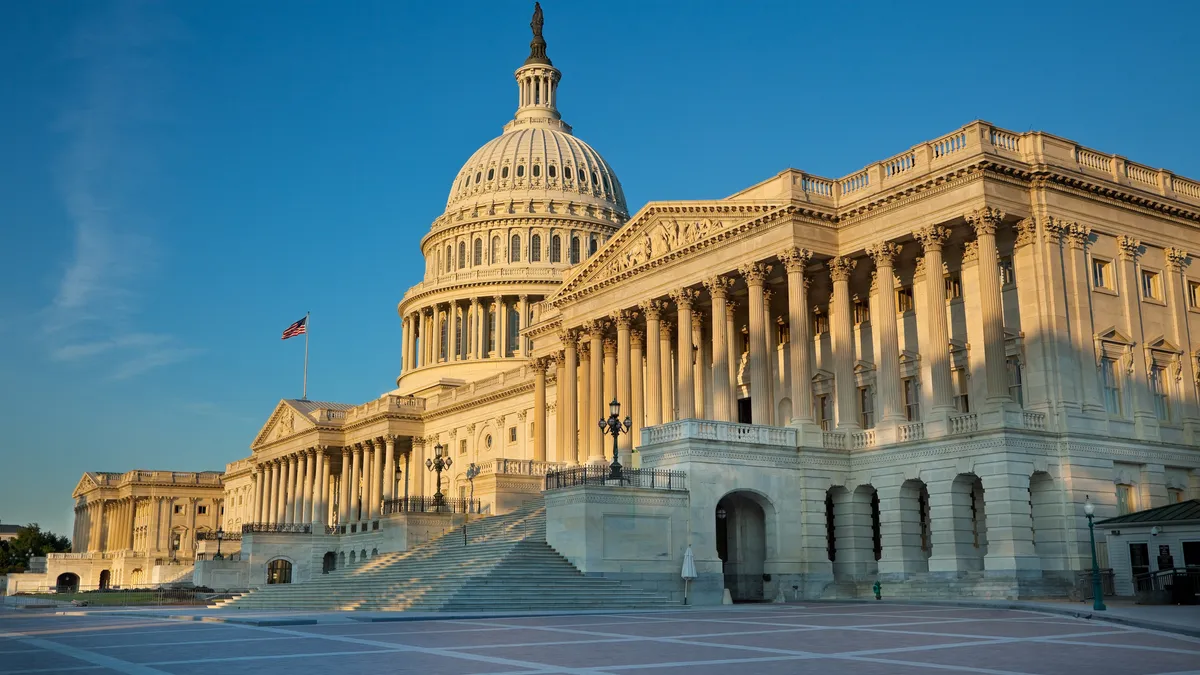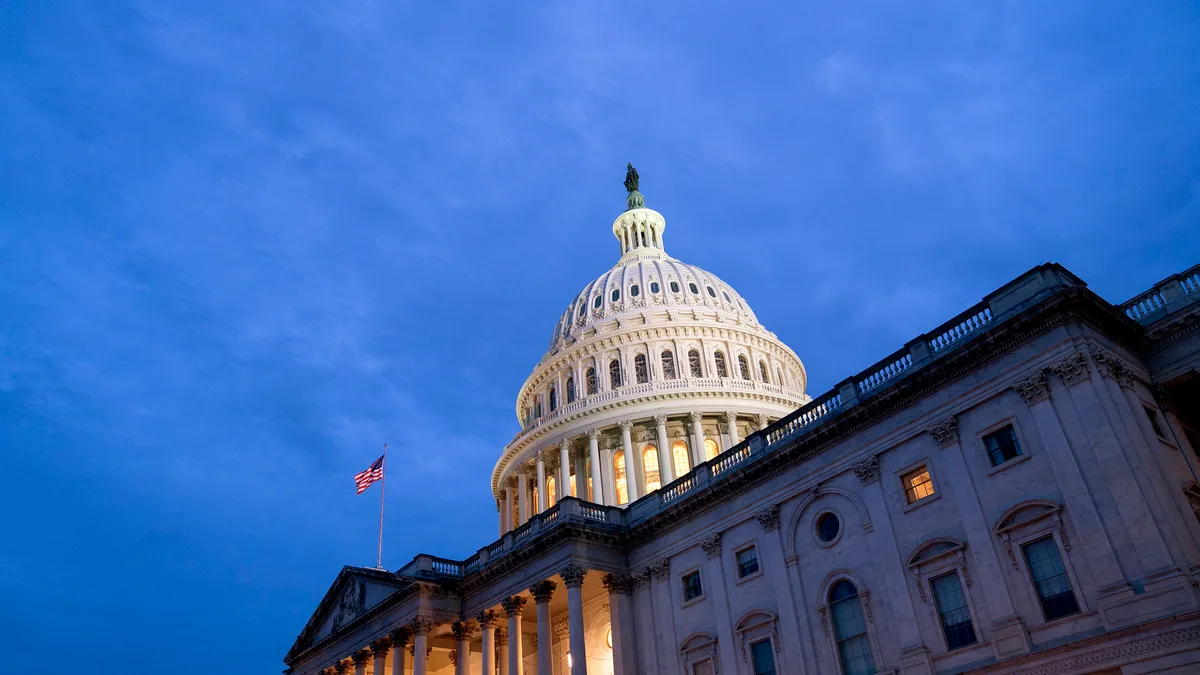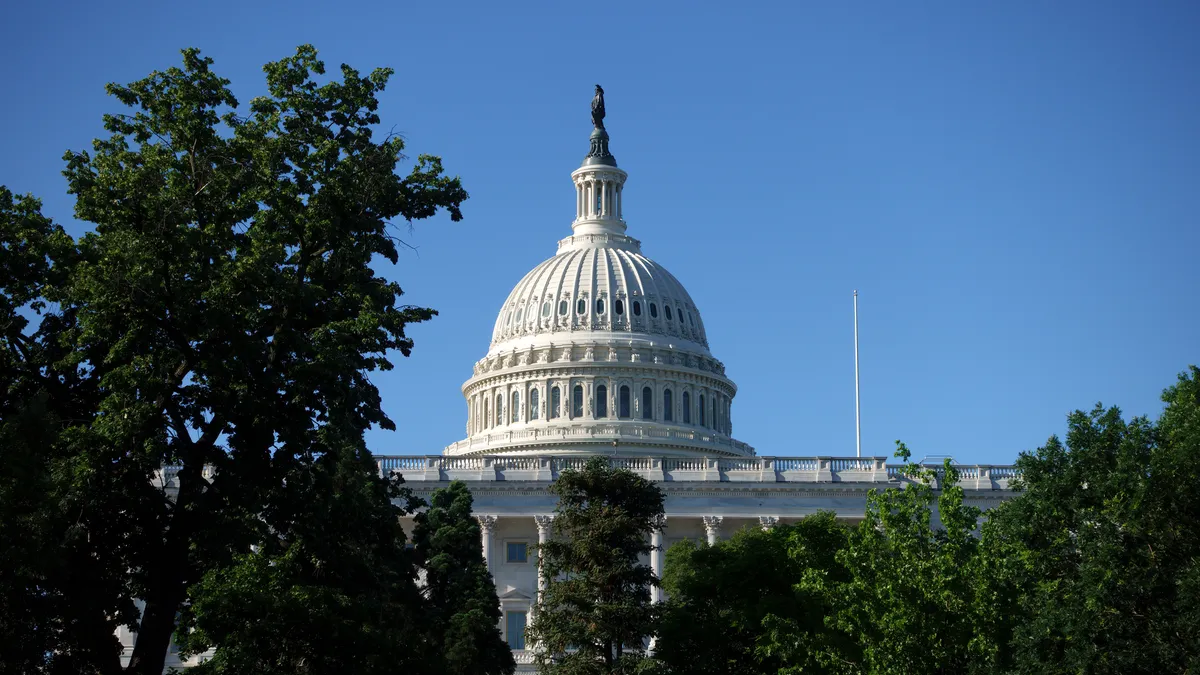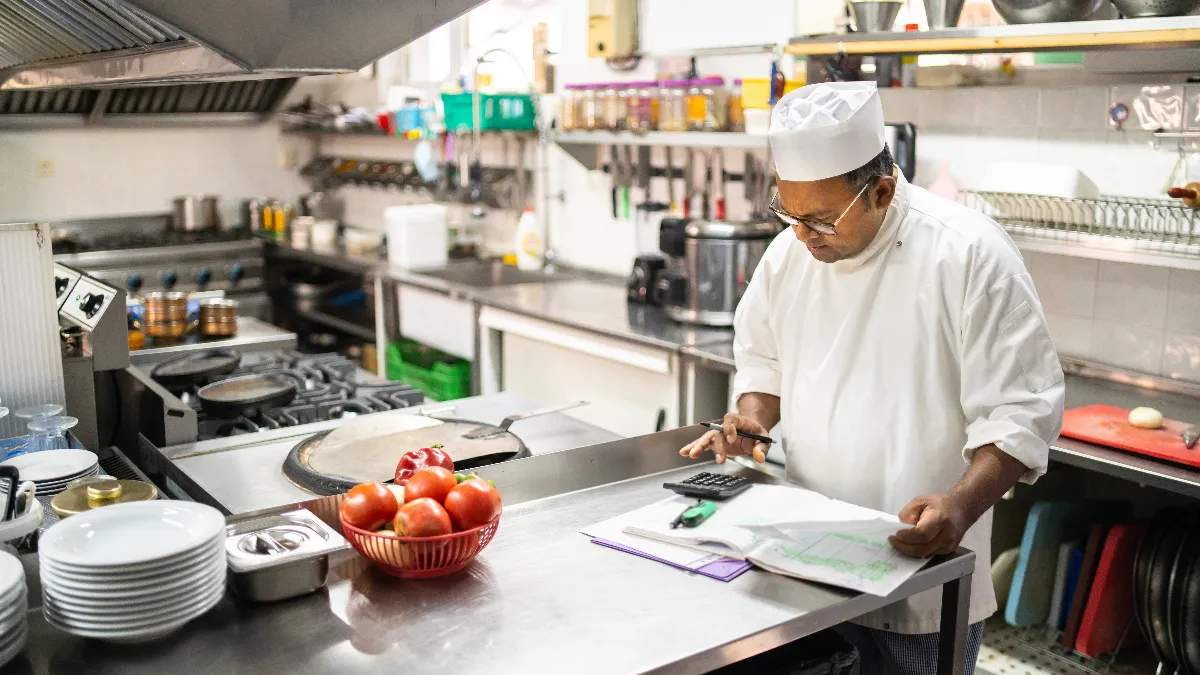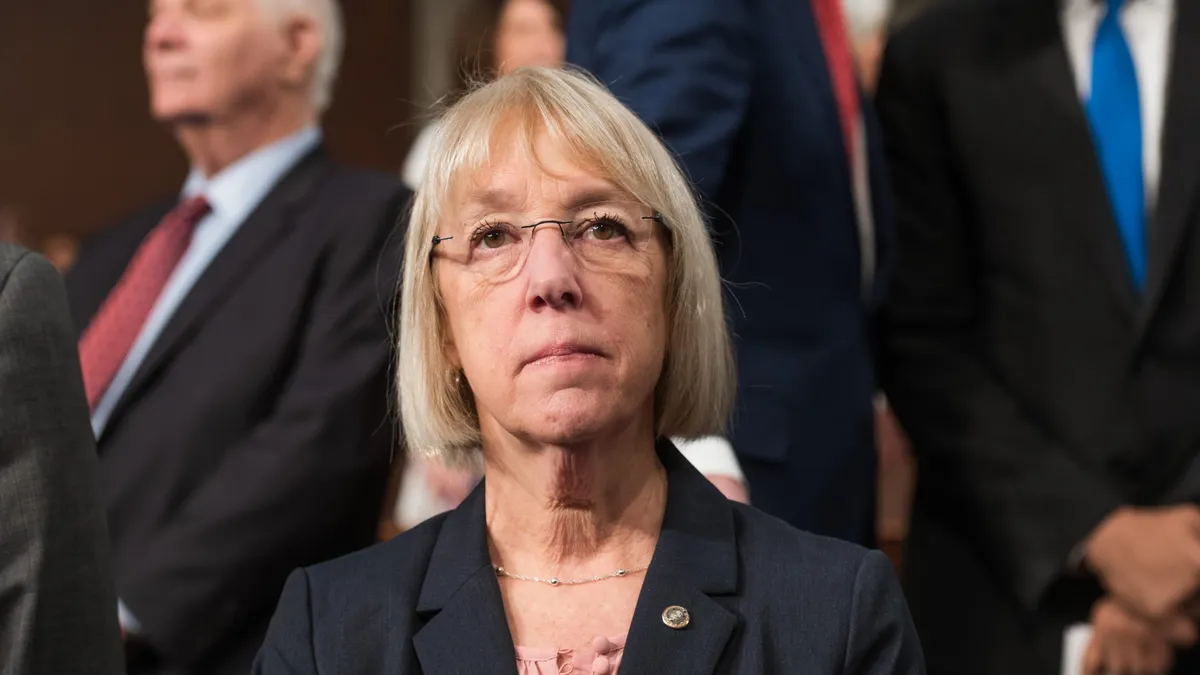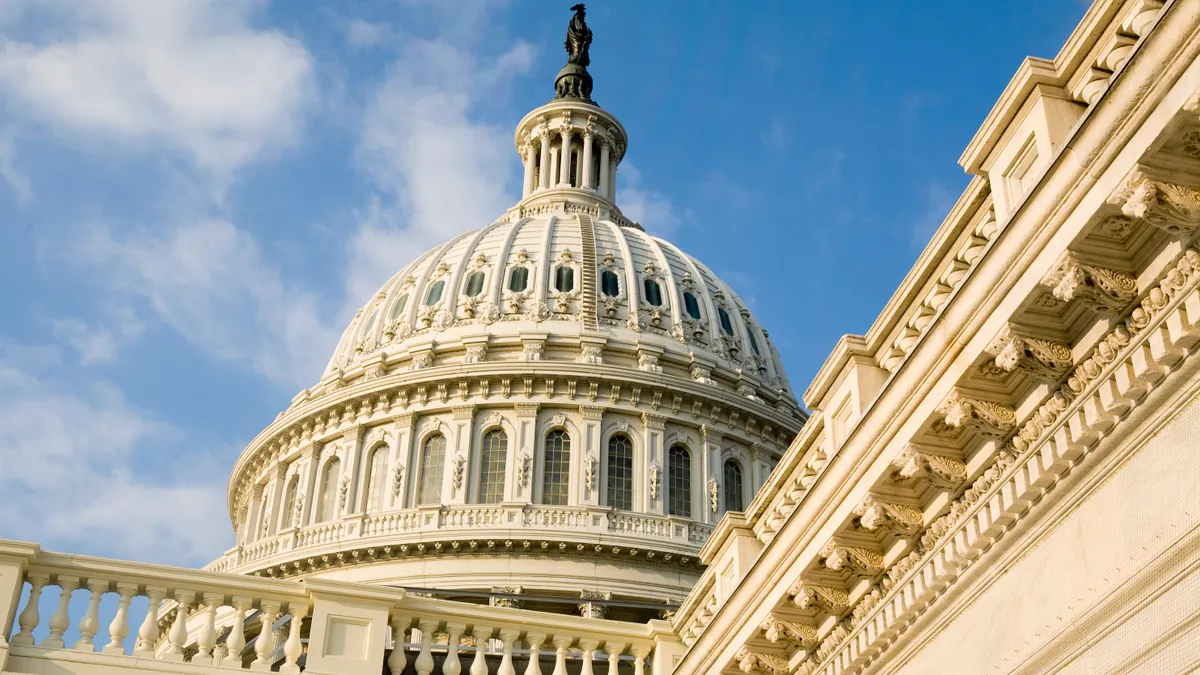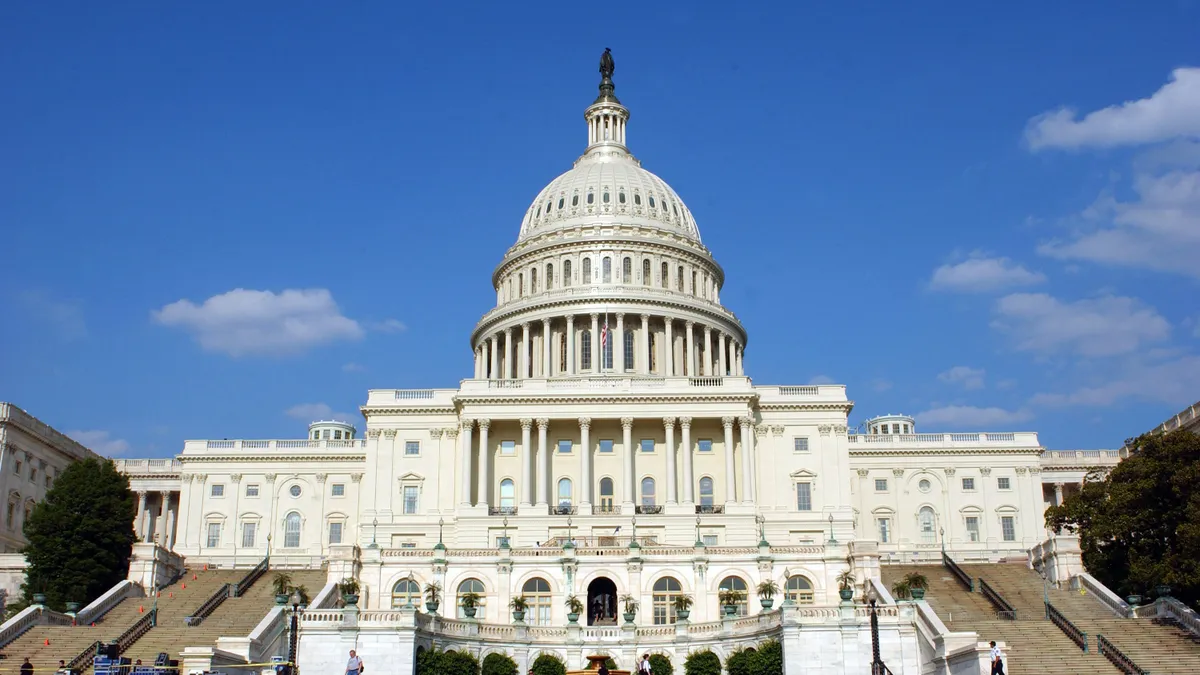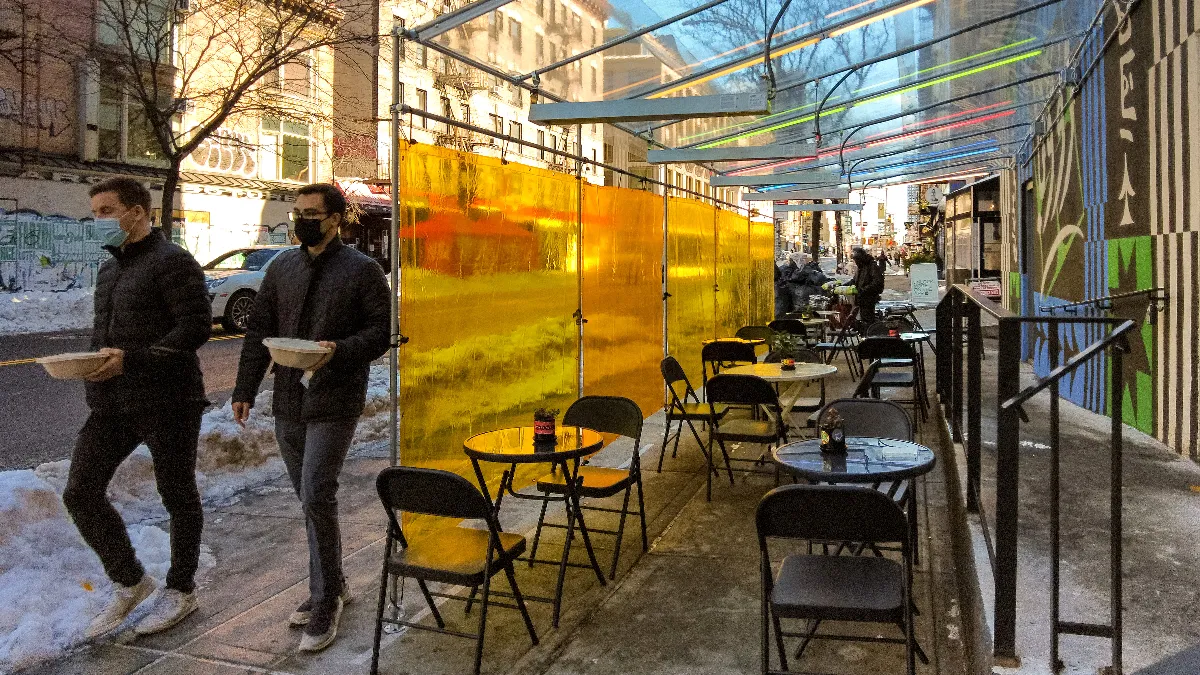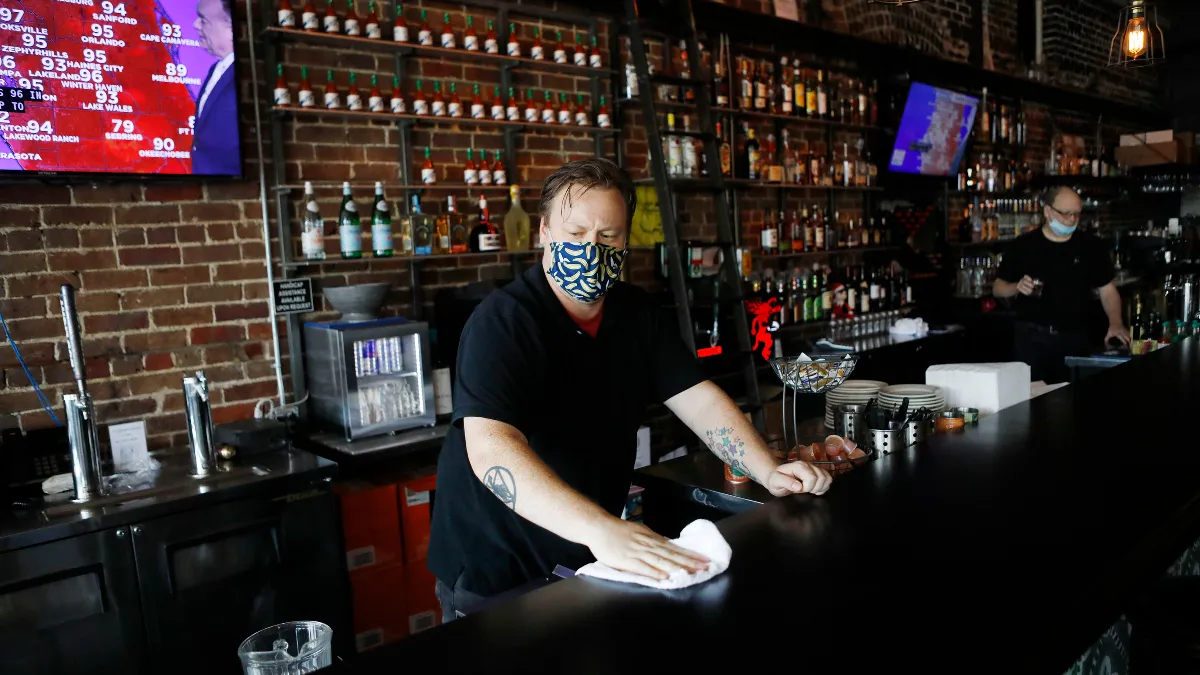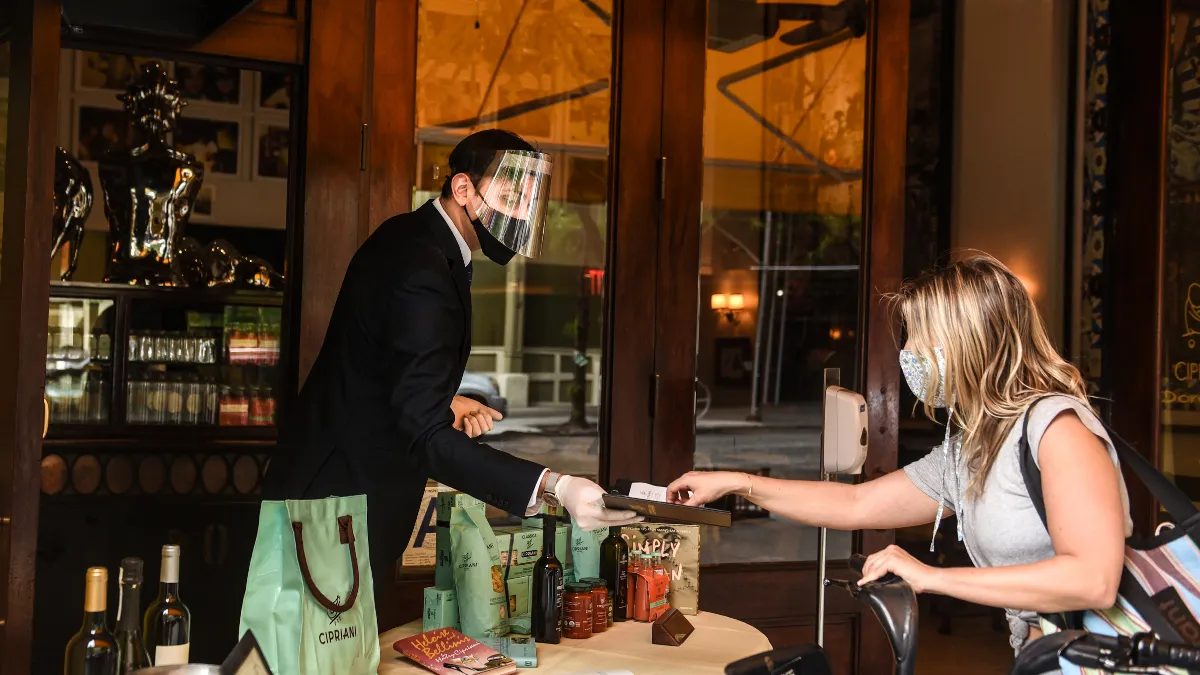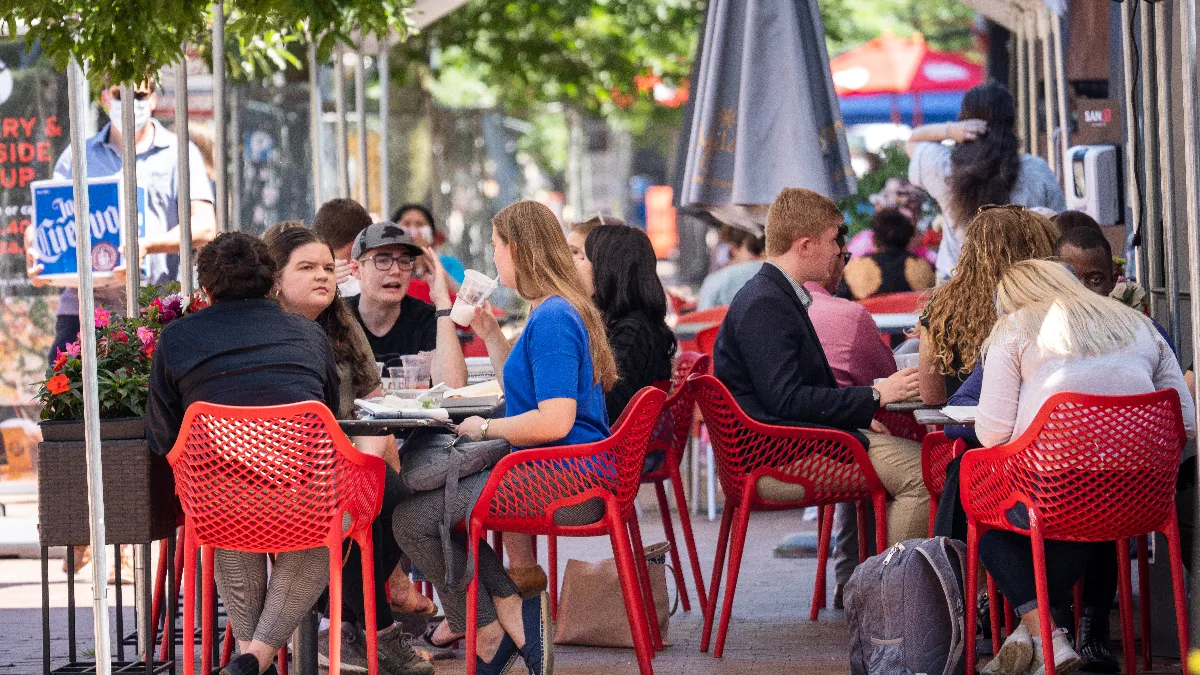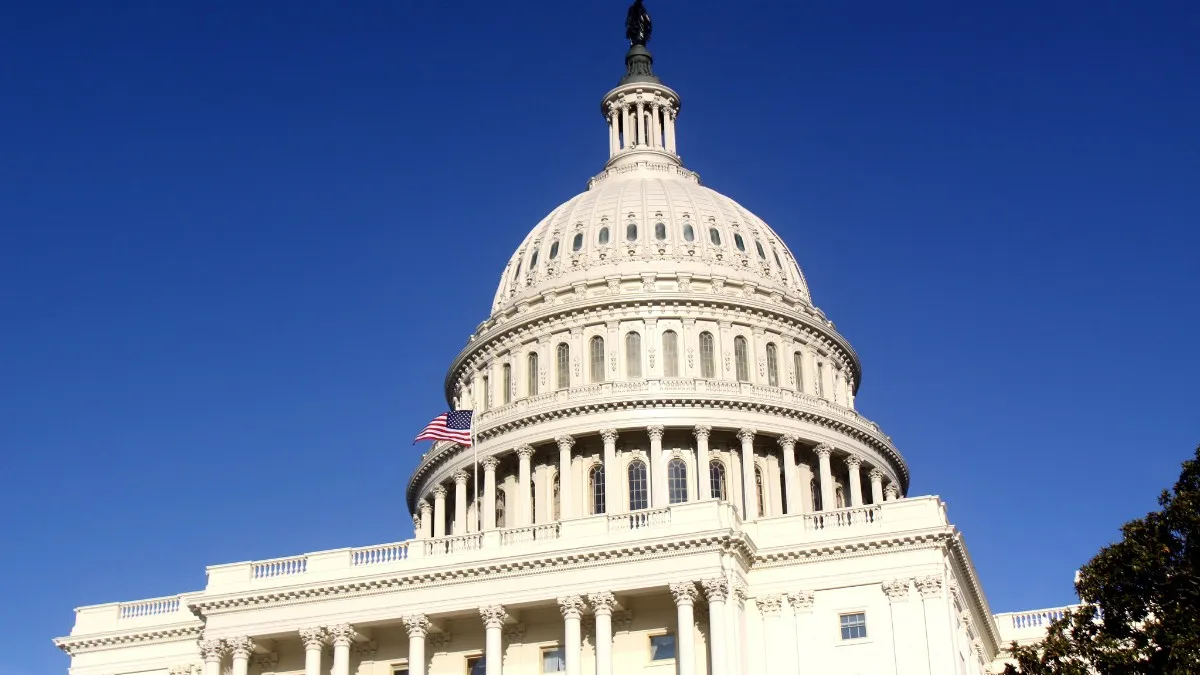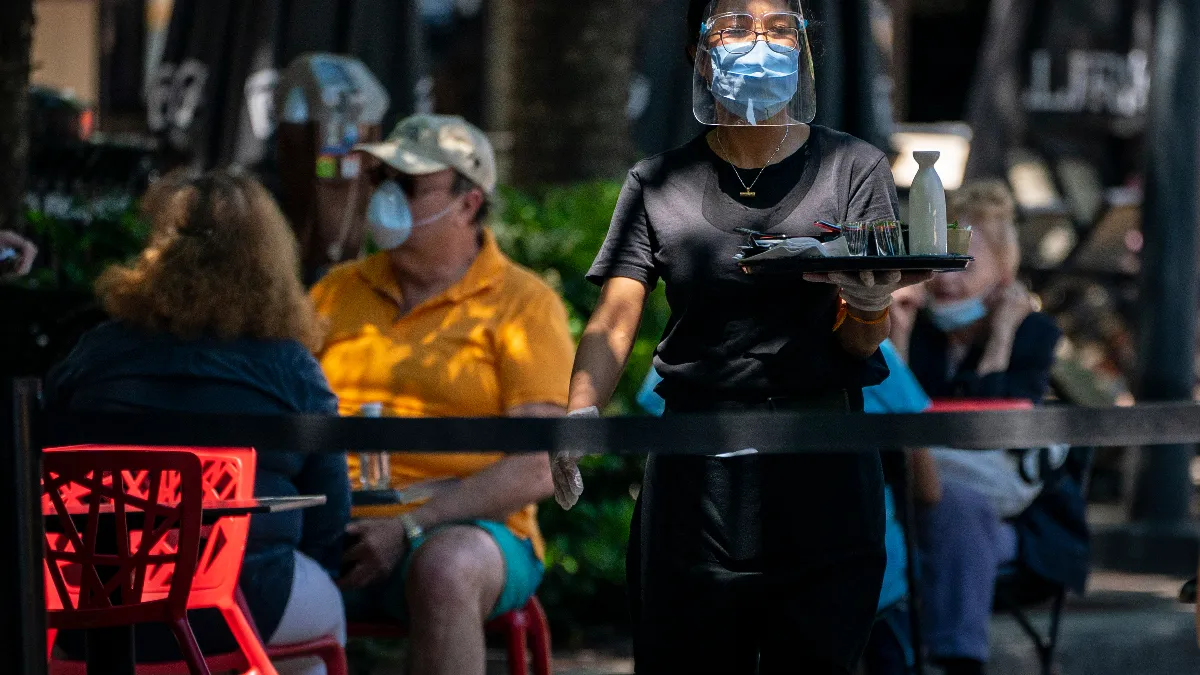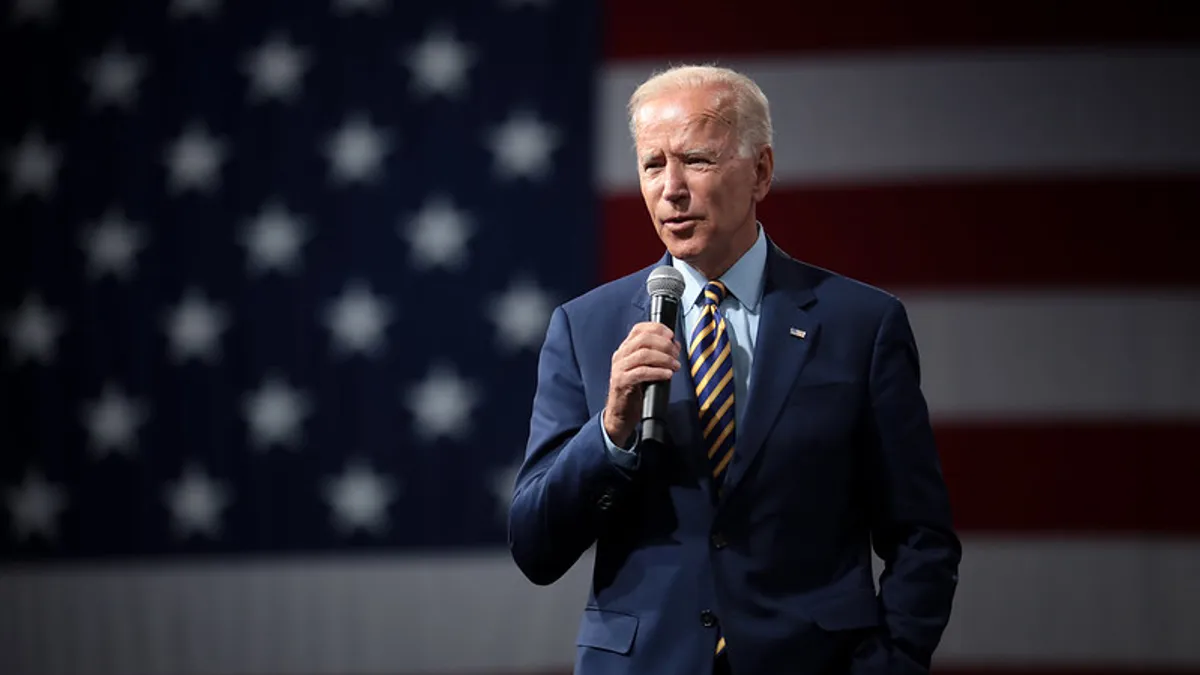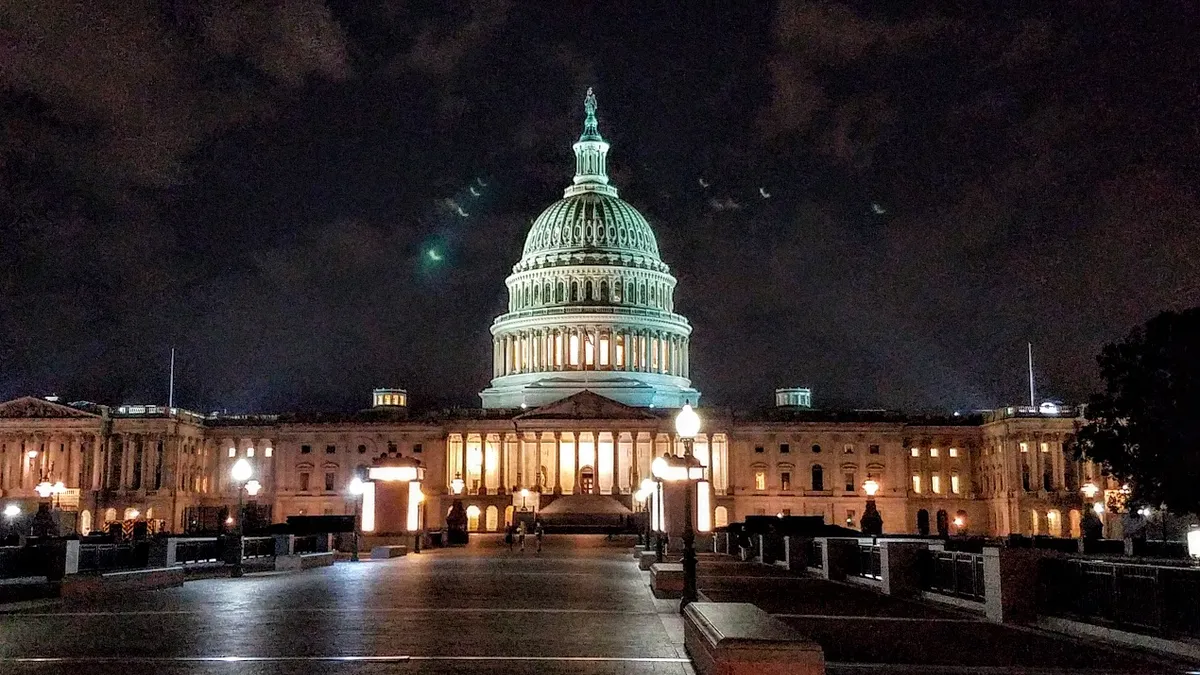This article is the third in a three-part series focusing on the impact the lack of additional grants from Restaurant Revitalization Fund has had on the restaurant industry, including a profile of Chef Greg Leon's pandemic story and an overview of RRF's fallout by the numbers.
Earlier this month, Chef Greg Leon of Amilinda in Milwaukee sat down to share his business' pandemic story — one marked by the challenges countless operators have faced amid early dining room closures. Amilinda lost staff and hemorrhaged money, unsure if the business would ever recover. But the creation of the Restaurant Revitalization Fund in May 2021 felt like a light at the end of a long, dark tunnel. Then it ran out of funds.
A year later, organizations like the Independent Restaurant Coalition fought for a refill of the program. A bill that would inject $42 billion into the fund passed the House in April, and similar legislation came before the Senate on May 19.
One week before the Senate vote, which would have put $40 billion back into RRF if policymakers passed the bill, Restaurant Dive asked Leon if he thought the fund would reopen at last. He admitted some days he was "super hopeful," but "then there's other weeks that I'm like, these people don't care about us. They just really don't care. We'll never get this money."
Leon was one of the nearly 3,000 restaurants whose grants were rescinded because of lawsuits arguing RRF's priority period for minority-owned operators was discriminatory.
Faidley's Seafood in Baltimore also had its funds revoked. Manager Damye Hahn spoke about her parents, ages 86 and 90, who own the female- and veteran-owned company and still work. Her dad, she said via email, has worked since he was 11. "He has literally worked for 79 years now."
So her frustration is palpable as she writes about her reaction to the Senate's failure to pass the Small Business COVID Relief Act of 2022. Exactly a year after funds went dry, there remains no federal aid for struggling restaurants.
Read Hahn's reaction, as well as reactions from across the industry, to last week's news.
Damye Hahn, Faidley’s Seafood
Manager
Baltimore
“Small independent restaurants like ours have been severely impacted by poor government decisions and imposed restrictions for over two years. We were asked by our government to close our businesses for months then operate at greatly reduced capacity for well over a year. We were asked to not only continue to pay our staff, rent and expenses, but to also adopt and pay for ever-changing safety procedures. Then due to the repercussions of government policies, we had to increase pay rates, manage supply change shortages, deal with skyrocketing [cost of goods] and fuel surcharges, all while experiencing forced reduced revenue. The Senate helped only a third of us and have left the rest of us to struggle and fail. Many of us will not make it. The Senate should be ashamed of how poorly they have treated the majority of small, independent, tax-paying restaurants. Not many of us had three years of reserves to shield us from the Senate’s failures! They will be the first to ask us for more taxes when they are short funds. Unfortunately, 40 percent of us will now not make it through to collect for them.”
Tiffany Derry, Roots Southern Table
James Beard Award-nominated chef and co-founder of T2D Concepts
Farmers Branch, Texas
“I'm disappointed — disappointed in the people who are there to be able to make sure that our lives can happen and that all the work we've done doesn't go down the drain. There are so many people who need a little help. Not a lot, just a little, and oftentimes you feel as a small business that you're constantly getting passed over for big businesses. Save them, save them. Well you know, can we get just a little bit? And so it's very disappointing to know that the people we put in these positions, whether we voted for them or not, they're not doing their job."
Gail Furman, Max’s Taphouse
CFO
Baltimore
“If a restaurant closes, it loses the five to 20 employees that were in there. ... But what people don’t understand is that it’s not just the restaurant closing. It’s the revenue that goes out to all the people that supply them with goods and services. It’s the food purveyors. It’s the produce guy. It’s all the liquor companies. It’s the beer distributors, the dry goods people, the people that supply dishes, the people who supply all the chemicals for the dishwasher, the linen companies. The tax revenue is lost in multiple avenues. It just [has] a massive impact throughout the country.”
Jason Berry, Knead Hospitality + Design
Co-founder and principal
Washington, D.C.
"It's disappointing that so many people were excluded and that the government didn't fund it to help all restaurants equally. The program was clouded in lawsuits and difficulties from the outset. Given how poorly the SBA handled it, the government should have done the right thing and ensured all those who applied were able to receive funds. While I understand inflation has created a persistent threat to our economy, it’s clear that Covid is still circulating, and with that threats to businesses who rely on social interaction remain. Our lawmakers’ clearly do not understand what the absence of this relief will inflict upon such small businesses. ...
We are lucky enough to be in very busy locations, but there was not as much of a cushion as we typically enjoy. KNEAD Hospitality + Design is strong but it would have been nice to have additional support from the government during this time. The program only helped a small number of businesses and Congress has the ability and plenty of funds available to have made the package more equitable."
Katie Norris, Grubhub
Director of corporate communications
"I'm hopeful that [the Restaurant Revitalization Fund] will continue on in some other shape or form. But I mean, if you ask restaurants, ‘What are their biggest concerns?’ ‘What are the biggest things that they need?’ Lower food delivery fees are like down here [gestures low] compared to just more labor to stay open, more resources in terms of like, are there tax breaks or other things the government could be doing? So I think we're hopeful and definitely supportive of it moving forward, and we’ll see how it continues.”
Rishi Nigam, Franklin Junction
CEO
“I almost hope that maybe organizations like the NRA get to play bigger roles in [disseminating funds]. I don't know if there's a better way to funnel it. But having a bunch of banks gate guard the money that goes from Congress to small businesses is probably not the ideal model for success. Ultimately, I like the idea behind it. But they've got to be able to execute it because I can tell you [there are] countless numbers of restaurants that failed to get the money from the first round that they were approved for.”
Tom Foley, T2D Concepts
Co-founder
“There's no doubt that the hospitality industry has too many workers and too many operators that are one crisis from difficult financial circumstances, and I'm not sure that is as recognized as it should be. Politics aside, I really hope that there is an effort to recognize that revitalization is necessary not just to build your community so you don't have dark spaces on Main Street, but you're also creating opportunities for the workers in the industry.”



